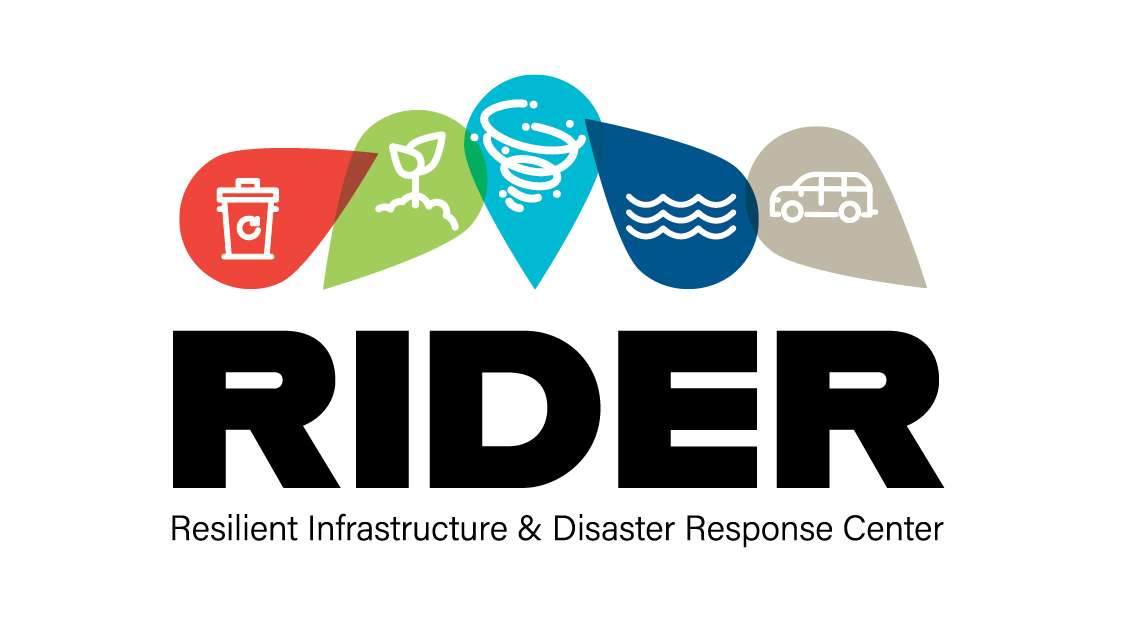At a Glance
Disasters are a fact of life. From hurricanes to COVID, wildfires to human-caused hazards, disasters change our lives and widen the broadening gap between populations that are resilient and those harmed most when disaster strikes. This gap, known as the resilience divide, leaves our vulnerable populations susceptible to the worst outcomes in their social, built, economic and natural environments.
Disasters take lives, damage communities, and cause billions of dollars in losses each year. Boosting disaster resilience and reducing the resilience gap will protect our vulnerable populations, save billions, and better our society as whole; RIDER is leading that work.
RIDER is working to reduce the resilience gap and protect our most vulnerable communities. Its multidisciplinary approach uses living laboratories and combines rigorous data-driven research with community insights - RIDER partners with community leaders, residents, government, industry, and researchers. This unique integrative approach, combined with the close involvement of these stakeholders, will result in new research insights and policy instruments that account for the interdependency and interconnectivity between communities, the environment, and infrastructure.
Spanning FSU and FAMU, RIDER unites engineers, social scientists, social workers, health, public policy, community and information specialists to find science-backed solutions to meet the needs of our most vulnerable communities and improve and increase resilient infrastructure and disaster response capacities.
RIDER Center is founded on the mission of achieving adaptive capacity and resilience for the communities affected by natural disasters such as hurricanes and the COVID-19 pandemic.
RIDER unites engineers, social scientists, social workers, health, public policy, communication, and information specialists synergistically towards developing emergency plans that fit the distinct needs of both urban and rural communities to solve the real-world problem of the “resilience divide.”
RIDER specifically focuses on:
- Understanding the factors that foster and support the efficacy of disaster resilience in varying population settings
- Extending our knowledge of community-scale infrastructure limitations in planning for natural disasters
- Developing long-term strategic adaptation and implementation plans to reduce community vulnerability needed desperately by the under-served areas of the state and the country affected by natural disasters to sustain their communities.



